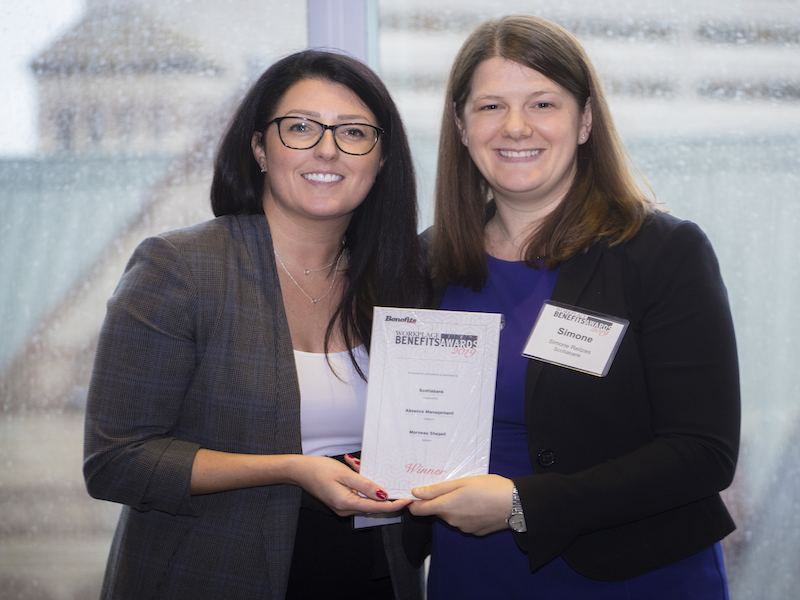

For its increased focus on complete reviews of its disability policy and overall absence management program, Scotiabank took home the absence management award at Benefits Canada’s 2019 Workplace Benefits Awards in Toronto on Oct. 17.
Three and a half years ago, Scotiabank went through a complete audit of its disability program, part of its overall best practice review for these programs, which included a look at both long- and short-term disability, as well as administrative practices.
“Any way that we can support total well-being when it comes to absenteeism, getting employees back to work quickly and safely so that they can really perform at their very best is always a top priority for us,” says Simone Reitzes, vice-president of global pension and benefits at Scotiabank. “Because employee health is vital to organizational health.”
Read: OPG wins absence management award for efforts to shift workplace culture
With the knowledge that earlier and more proactive support for employees would shorten the length of a claim, the bank considered process and administration. It created a new employee and manager supplement to the disability policy, which included answers to frequently asked questions. These supplements are regularly reviewed, with the latest version released this summer.
In addition, Scotiabank revamped its in-house supports for disability management by moving to a mixed-model approach in 2017. The approach focuses on providing employees who are actively at work with accommodation support to allow them to stay in the workplace, while also preparing employees off on leave for their return to work.
The bank also zeroed in on data analytics, after the organization discovered there was a gap in its previous program. The revamped short-term disability program provides Scotiabank with detailed claims analytics so trends can be noted by various lines of business. The change allowed the organization to respond to emerging issues and develop strategies to help employees while also managing general absences trends.
Read: Mental-health first aid training targets rising disability concerns in electricity sector
“Analytics has been a really important part of revamping the process for us — finding out what’s driving absenteeism, looking at pockets of our population, whether it be by business line, or geography or other cuts that are most impacted,” says Reitzes. “It really allowed us to target preventative measures and make sure that we are delivering best-in-class programs to support every employee the way they need to be supported.”
Scotiabank also introduced absence training for its people managers. The program includes proactive approaches to identifying pre-disability factors, attendance patterns, accommodation and return to work. In 2018, the program’s first full year, the bank saw a reduction of $4.1 million in direct short-term disability costs and a reduction in annualized long-term disability costs of $14.5 million.
Read: New software aims to aid return to work from disability
